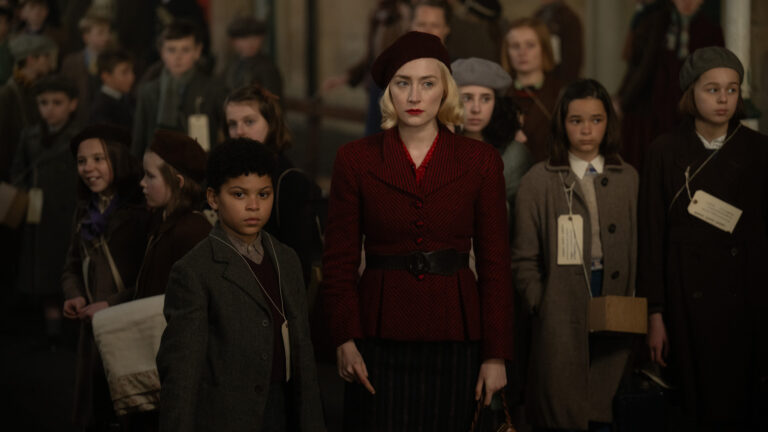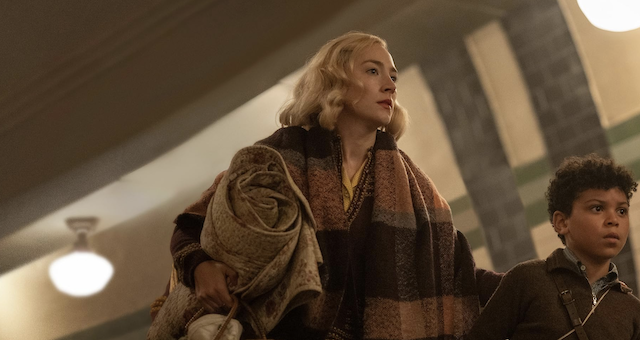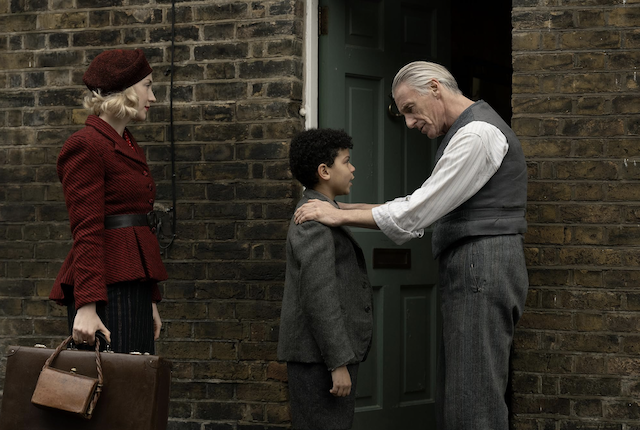
@Courtesy of Apple TV +
Selected as Closing Film at the 62nd edition of the New York Film Festival, the last movie directed by Steve McQueen tells the story of George, a young boy trying to go back to his mother Rita when London is under the bombs of Nazi aircraft. Born out of wedlock with a white mom and a black soldier, he has to face not only the horror of war but also the prejudice of a society still very divided about race and the color of skin.
As already happened with 12 Years a Slave, there are some moments in Blitz when you question Steve McQueen’s choices as a director. Why did he decide to shoot in such a beautiful way a specific shot or a scene that is not particularly important for the narrative of his movie? Even though it is quite difficult not to admire the aesthetic of those same moments, at the same time they can create a sort of discrepancy with the dramatic events and characters. It looks like McQueen hasn’t yet been able to find a balance, or at least a coherent way to tell his stories through images, sometimes way too beautifully crafted if compared to what they show. Something that for example didn’t happen in Widows, a thriller that maybe he didn’t feel as personal as Blitz but realized with a gripping focus on the genre. In fact, it is in our opinion his best work since Hunger.
Another problem that deeply afflicted Blitz is the rhetoric of some characters and situations, especially when they address the topic of racism of British citizens. The relationship between Rita and George’s father is presented without any real depth, seeming this way just a tool used to explain how ordinary people and police officers could be abusive and violent against blacks, no matter if common citizens or soldiers: the sequence in which the man is taken away from the love of Rita is so fast and predictable that doesn’t really serve the purpose for which it was created. Same way about the African soldier who helps George in his struggle to go back home: he is such a good, noble, heart-warming character that becomes more of an emblem than a real person.

@Courtesy of Apple TV +
McQueen is so eager to introduce all these themes that doesn’t make them real, adding nuances, or even the right amount of screen time to give them some substance. Working with a screenplay that doesn’t dig deep into the characters’ heart and soul, even usually good actors like Saoirse Ronan, Harris Dickinson, and Stephen Graham, fail to create figures that are worth to be remembered. Blitz ends up working only on the surface of its beautiful mise-en-scene, but can’t really develop an emotional connection with the audience.
Steve McQueen is a very talented director who sometimes doesn’t know how to “contain” his own talent, letting his sense of beauty overcome, if not suffocate, what he should instead focus on. In Blitz, there are some remarkable cinematic moments that are unnecessary, and ultimately distracting from the dramatic events of London being destroyed by the bombs. The viewer experiences the movie without being really moved by what happens to the young protagonist or his mother.
And without a real connection with the characters, even the horror of the war doesn’t truly shock, which is quite disappointing as a result. The sequence shot in the subway galleries is quite emblematic of how much Blitz lacks intensity, despite being a movie that is technically admirable. Working on a screenplay more capable of creating non-monodimensional figures or more dramatic situations could have helped McQueen to find a cohesive mix between story and visual storytelling.

@Courtesy of Apple TV +
Rate: C-
If you like the articles, share your thoughts below!
Check out more of Adriano’s articles.
Here’s the trailer for the Blitz:

